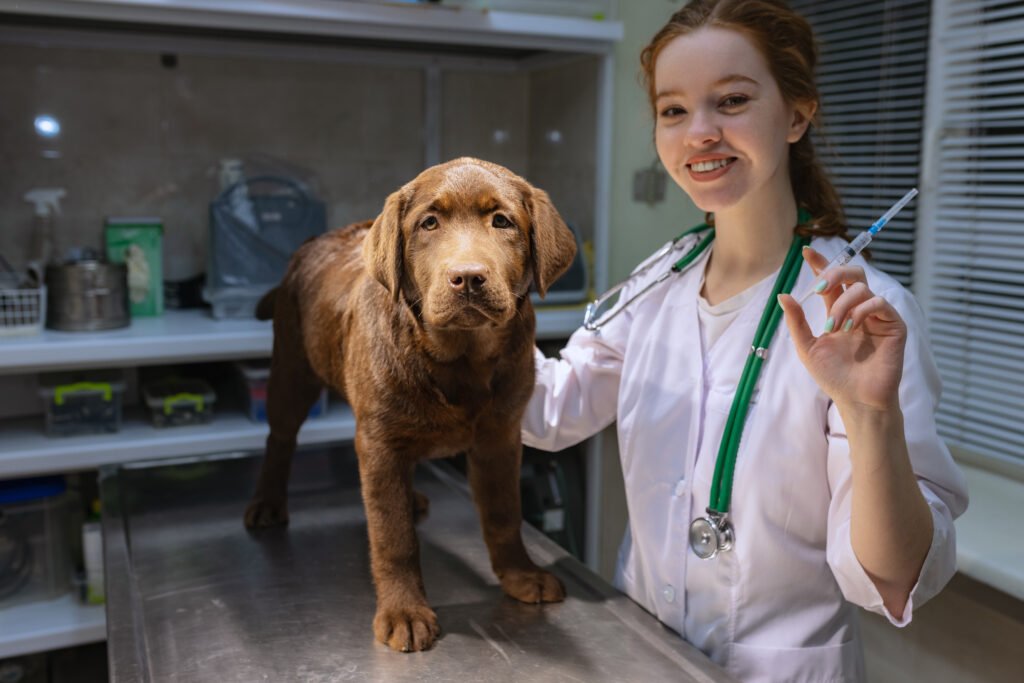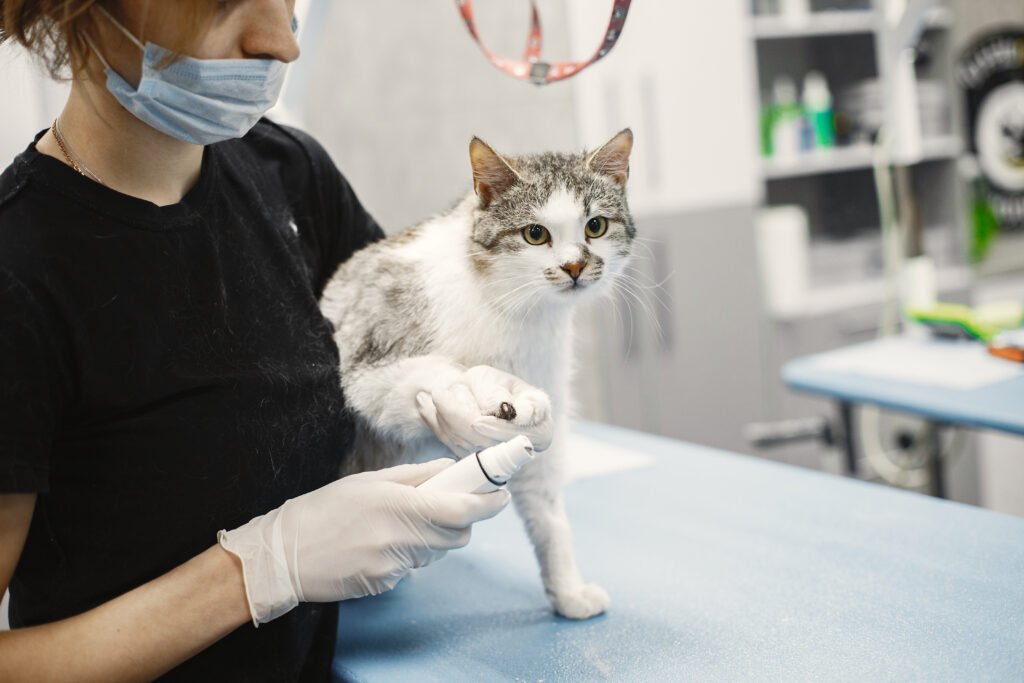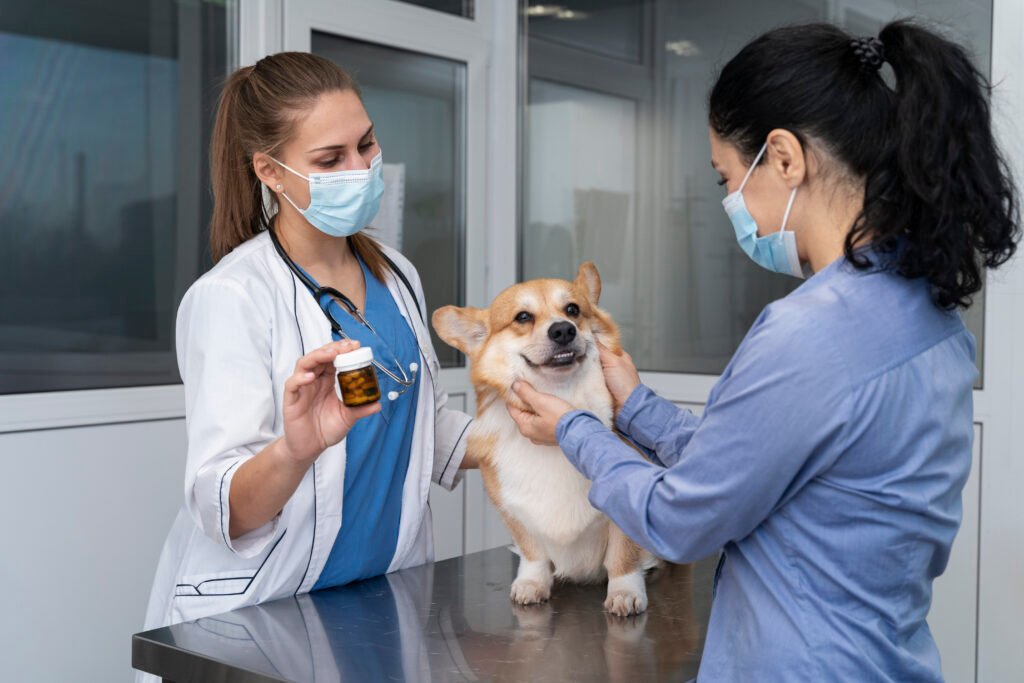Which vaccines are mandatory for pets?
Due to the public health concern related to the spread of life-threatening communicable diseases, some vaccines — specifically rabies vaccines — are required by law to adequately immunize companion animals. Rabies is zoonotic, which means it is an animal disease that is sometimes transmitted to humans; it is fatal in humans unless treated with the rabies vaccine. This is one of the most serious consequences of not using mandatory vaccines for dogs, not only for dogs but also for all of us.
Mandatory: This is required by law to keep pets from causing an outbreak and safeguarding humans and animals. Besides halting legally those diseases that, unnoticed, become a scourge, the law brings provisions that protect the owner of the dog, exposing them to a fine, isolation of the animal carrier for quarantine, and in some cases, it enforces the bail to which your dog is causing third parties as he passes the disease.

Penalties for Violating Mandatory Vaccines for Dogs Requirements
Where required by law, be aware that not vaccinating your pet against a deadly disease like rabies can cause severe legal drama depending on jurisdiction. Here’s a detailed breakdown:
1.Fines and Penalties
There can be fines connected with a failure to follow rabies vaccination laws for pets in quite a few areas. The penalties can go from little bit of a fine for first time offenders to considerable amounts for repeat offenses. There is a range of fines with the exact amount depending on local rules and enforcement.
2.Quarantine or Euthanasia
Local authorities may require the animal to be quarantined if an unvaccinated pet bites or scratches someone. It can range from 10 days (when the pet is monitored for symptoms of rabies, then released) up to whatever local law/ordinance specifies. In the most life-threatening scenarios, if a person has been seriously injured or if veterinarians are studying a pet that displays evidence of rabies, then authorities may opt to euthanize it so that they can test for rabies (since there is no accurate way to diagnose the disease in an animal without destroying its brain).
3.Legal Liability
Therefore, if your unvaccinated pet bites someone and gives rabies to them, as a guardian, you will be legally responsible for any expenses paid on that person’s medical treatment after. In some cases, if the victim contracts rabies from an unvaccinated pet and dies or is seriously ill for a long period of time because of it, then very possibly be sued by the family in civil claims (as well as anyone else infected like other human beings) due to negligence set free and also criminal prosecution Although based on what happened.
4.Confiscation of the Pet
Not only that, in some jurisdictions the health authorities can seize your pet if they find it unvaccinated during a routine check or following a complaint. For some pets, the vaccine is mandatory and must have been done at least 24 hours beforehand — if no proof of vaccination can be provided an animal may be retained until such time as it has.
5.Restrictions on Pet Travel
Failing to vaccinate a pet may lead to him/her not allowed for travel, either within the national territory or abroad. Provided that rabies inoculation is a regular need for animals going across any kind of state or national boundaries. If it does not meet these requirements, the pet can be refused entry or may have to be quarantined at your expense or returned to its place of origin.
6.Impact on Pet Insurance
If a plan includes coverage for rabies, the policy will require proof of vaccination. For example, if your pet is not vaccinated and contracts rabies or other potentially preventable illness you may be out of luck — the insurance company will likely deny any claims based on that condition.
7.Public Health Risks
Especially in rabies prevalent areas, an unvaccinated animal places the health of the public at risk and that cannot be ignored. Community-wide efforts to locate and vaccinate unvaccinated animals may follow, on the grounds that authorities will feel pressured to keep a tight lid on an outbreak. Even as a pet owner, you may be more scrutinized or penalized if your unvaccinated pet is located.
This responsibility is more than a legal matter as it also entails public health and the welfare of your pet in general.

Exemptions and Special Considerations for Pets with Health Conditions
Although exceptions exist in many jurisdictions for animals unable to receive mandatory vaccines due to a medical condition. Here’s a detailed overview:
- Medical Exemptions
- Many jurisdictions allow for medical exemptions, meaning that pets with specific health problems that might be made worse by vaccination suit conditional criteria. Many conditions, potentially immunologic diseases or severe allergies to vaccine ingredients such as eggs (though some vaccines are egg-free) put individuals at risk of vaccination due to the components often seamlessly replicated in all licensed forms.
- A pet may be excused from receiving the vaccine if a detailed written statement from a veterinarian provides information proving an incidence of any risk to their health. This statement must be presented to the applicable local or state health authorities to assess your request and determine whether an exemption may be granted. This was accompanied by a caveat that pet owners who were given such exemptions may be called upon to take further steps, including exposure to inequity or keeping the animal indoors.
- Temporary Exemptions
Occasionally, a pet may be provided with an exempt period (up until the vaccination). That could happen if the pet is being treated for a condition that suppresses its immune system, as occurs temporarily during chemotherapy to treat cancer. Assuming the pet stabilizes in his health it may still have to receive a vaccination under these guidelines even if chronic or permanently worsening.
In most cases, temporary exemptions require continual education and medication.
- Age-Related Exemptions
- Vaccination exemption may apply to very young animals (less than 8-12 weeks of age), or geriatric patients. For example, puppies and kittens may be so young that they cannot safely receive some vaccines yet, putting them at a temporary timeout until the age where it is okay to hit those milestones. Likewise, older dogs that have medical problems associated with old age may be considered for a waiver if the risks of vaccination are greater than any potential benefits.
- Similar to medical exemptions, DOC may offer statutory age-related exemptions as a condition of policy, subject to the BPCA program (as applicable), and may require veterinary documentation for any such exemption; they must be re-evaluated periodically.
- Alternative Measures
- If a pet is not protected under mandatory vaccination, some areas may require other means for public protection. These measures can range from more rigid confinement (keeping the pet indoors or on its owner’s property at all times) to titer testing, which checks levels of antibodies that mean an animal is already immune to a disease because it has either been vaccinated against it in the past or exposed.
- Titer tests require taking a blood sample from the pet and testing it for certain protective antibodies. Alternatively, if sufficient immunity is demonstrated on a test the pet may be accepted in lieu of vaccination. Although in domestic and wild carnivore species titer tests are not always considered a sufficient alternative to vaccination, especially in endemic rabies areas.
- Legal Considerations
However, even with an exemption it is never as simple: Note that this does not mean you are in the clear legally. An exempted pet can bite someone and the legalities that normally come with proof of vaccination may not apply if your animal comes into contact with a rabid animal. The pet could be placed in quarantine or subjected to other severe measures, and the owner might face repercussions from any damage done.
- Documentation and Compliance
The exception only applies if you keep copious notes about your pet’s medical issues and how long the local dogs handle you. To maintain an exemption, all follow up requirements (e.g. regular veterinary checks or movement restrictions) must be met to ensure the pet remains protected and a public health risk is not created
So in short, there are exemptions on pet vaccinations for animals with some medical conditions but they must be documented and fit within all applicable laws; which can present challenges to the owner as additional surrender items might also play a role.

Frequency of Re-Vaccination for Pets to Comply with the Law
There are a few reasons why pets may need to be re-vaccinated, such as the type of vaccine administered, age and health condition of your pet or region you live in (as laws vary depending on location). This is more of a specific breakdown:
- Rabies Vaccination
Rabies vaccination is For your pet, you may have to pay mandatory one-year or every-third year rabies shots (often for dogs and cats). The frequency of rabies vaccination will often be dictated by the type of vaccine administered :
Puppies and kittens receive their first rabies vaccine at 12-16 weeks of age according to local regulations. It is followed by a booster one year after the initial vaccine.
One-Year vs Three-Year Rabies Vaccines: c There are two types of rabies vaccines, one-year and three-years. Following the first inoculation, pets have to be vaccinated either annually or triennially (at 3-year intervals) based on the kind of vaccine applied and neighborhood law. In certain locales, the three-year vaccine is acceptable; in others (including my local ( government), annuals are necessary regardless of whether I have instituted a tree marker removal and re-marking requirement.
All pets must be up to date on vaccinations and rabies certification in order for you to comply with the law so parents need proper documentation. Not doing so can lead to potential penalties as we discussed previously.
- Core Vaccines for Dogs
Core vaccines other than rabies Dog friendly populates Core vaccines usually included are :
- Canine Distemper
- Canine Parvovirus
- Canine Adenovirus (Hepatitis)
This is a schedule for these vaccines
Puppies: Puppies usually start getting these vaccines at 6-8 weeks of age, with boosters every 3-4 weeks until about 16 weeks old.
Adult Dogs: After their first (puppy series) adult dogs receive a booster one year later. From that point on, boosters are usually advised every 3 years but may be recommended yearly by some veterinarians according to your pet’s risk of exposure and the prevalence of the disease in your local area.
- Core Vaccines for Cats
Core vaccines for cats protect against:
- Feline Herpesvirus (FHV-1)
- Feline Calicivirus (FCV)
- Feline Panleukopenia (FPV)
The vaccination protocol for cats is similar to that of dogs:
- Kittens: Kittens can begin receiving vaccines when they are about 6-8 weeks old and need boosters every 3-4 weeks until they are between the ages of 16 to around 20.
- Adult Cats: Following the completion of the initial series, adult cats require an additional vaccination 1 year later, then every 3 years after that. Like with dogs, there are some veterinarians who will recommend boosting more often due to the health of the cat and their risk of exposure.
- Non-Core (Optional) Vaccines
Non-core means the vaccines may be indicated only for pets with particular risk factors, i.e., environmental exposure or rural vs. urban living.” Some of those include vaccines for diseases such as Bordetella (kennel cough) in dogs or Feline Leukemia Virus (FELV) in cats.
- Frequency: For non-core vaccines — depending on which specific vaccine is used and the pet’s level of risk, some boosters may be needed as often as annually.
- State Laws: Non-core vaccines may not be required by state law, but some facilities will want to see that your pet is up-to-date on its vaccinations (i.e. if you take him/her to a boarding kennel or dog park).
- Regional Variations
The rates of re-vaccination can also be influenced by the laws and regulations designed to keep people safe in your area. In some regions with a high burden of certain diseases, or where fears about waning vaccine efficacy has caused outbreaks in the past, health authorities might also advise more frequent vaccinations. Conversely, in other parts of the country protocols dictate that you must follow the national guidelines which allow for longer intervals between each vaccination.
- Why Is Veterinarian Supervision Essential?
This post is a reminder to pet parents that it is important to work with their veterinarian when figuring out the right vaccine schedule for your pets. Vets can offer bespoke advice on things like the age of a pet, how fit or healthy it is and its lifestyle as well as what legally needs to be done in your local area.
- Keeping Up-to-Date
Keeping up with local vaccination laws that need your pets to be vaccinated against certain diseases and ensuring that those booster shots are administered on time. Veterinarians ask you to make follow-up appointments or give vaccine cards telling the due dates for subsequent vaccines. Moreover, many places will request that pets have badges showing their vaccination, most of all rabies.
The frequency of re-vaccination for compliance with local laws ranges from 1 to over 10 years, depending on the type and location of previous vaccination. Read more – Your pet needs to be checked by a vet on a regular basis as well as updated with vaccinations every year, both for the number of compulsory shots and those that are desirable.
